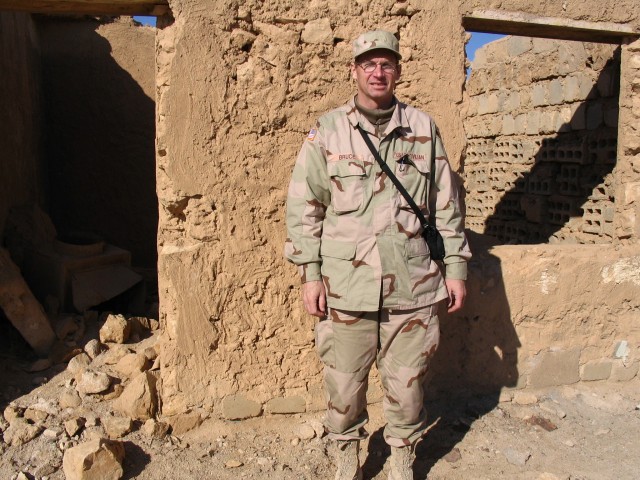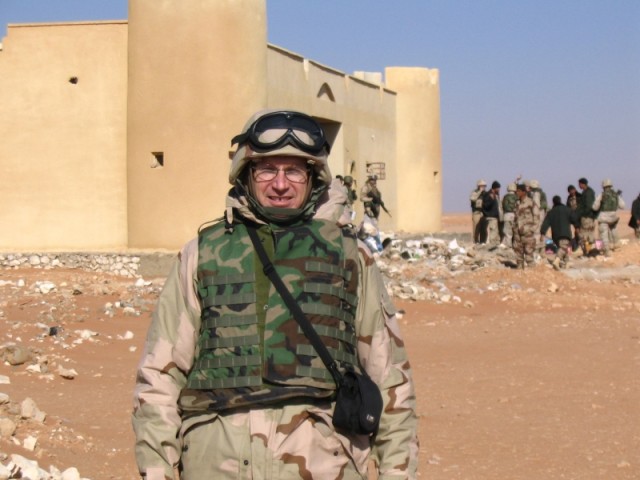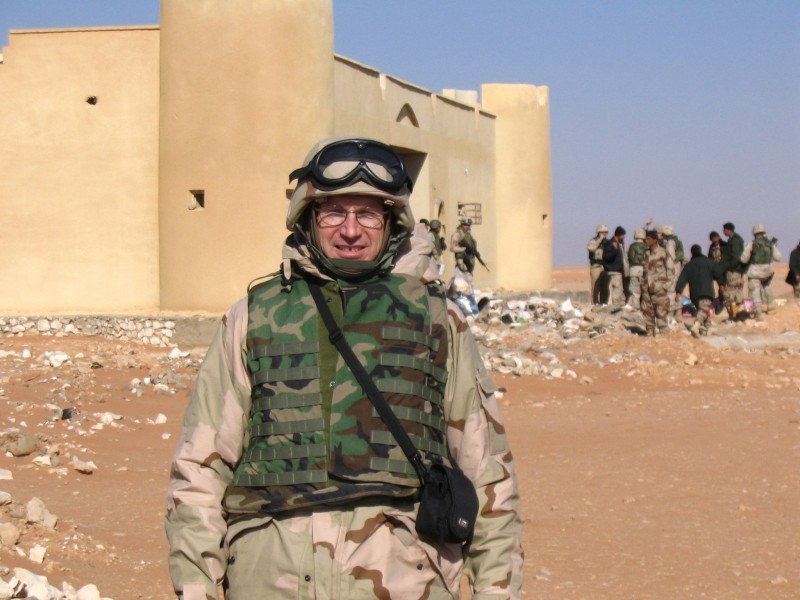Since Sept. 11, 2001, more than 6,000 Corps employees have volunteered to serve over in Iraq and Afghanistan. Here at the New York District, more than 35 individuals have deployed totaling 60 deployments.
Currently, there are 13 New York District employees deployed and six in the pre-deployment stages.
Recently, President Barack Obama ordered an additional 30,000 troops to serve in Afghanistan. With a clear focus on helping to rebuild the war torn country, U.S. Army Corps of Engineers civilian volunteers are needed now more than ever to complete that mission.
In April 2009, Kevin Bruce, a New York District biologist for the upstate regulatory field office, volunteered for a six month deployment in Iraq. There, he served as a project manager working out of Gulf Region Central Headquarters, Victory Base-Camp Liberty with projects in Anabar Province located in the city of Fallujah, Iraq. In his own words, Bruce explains how deploying changed his life and what the experience meant to him.
Q: Why did you decide to volunteer'
A: My main motivation was to make a contribution... to give something back to support my country. On my first deployment with the Corps in 2004-2005, I spent four months in western Anbar Province as a Project Manager. Security was very difficult in Anbar at that time and most of my assigned projects, being scattered across the westernmost regions of the province, never even broke ground. So I also wanted to go back to find out first hand what had been accomplished, maybe to see some progress that was difficult to see during my first deployment. Adventure and challenge were factors, and the money was also a factor for my second deployment.
Q: What was the most rewarding experience you got out of deploying'
A: Interactions with people... Corps folks, men and women of our armed forces, Iraqis, and people from all over the globe working on the bases in support roles. Maybe just a brief conversation with a Soldier you happen to share a table with at mealtime...or the daily greeting and small talk with the gentleman from India who cleaned the office building...people\'s stories are fascinating.
Q: What were some of the difficulties you faced'
A: It's a very challenging environment to work in. Tasks that are simple in the states can be very difficult to do, for example, making arrangements for a meeting or to visit a project site. For operational security, you can't just pick up a telephone or send an email and state times, dates and locations. Sometimes you had to get pretty creative. Also the day in, day out work wears on you after a while. The 2-week R&R was a welcomed break.
Q: Would you recommend deploying for others' Why'
A: Yes, most of all because you play a role in something larger in significance than probably anything else you will ever do in your lifetime...and there is something very gratifying about that.
Q: What was your work schedule like'
A: Work a minimum of 10 hours every day, except Friday which was a 5 hour day. Normal work week was 65 hours but sometimes worked additional 5 to 10 hours overtime each week.
Q: Would you go back' Why'
A: Yes, definitely. I enjoyed the challenge and got to meet a lot of great people from many different cultures. The money incentives are very attractive and it is a great opportunity to take an active role in a part of our world history.




Social Sharing